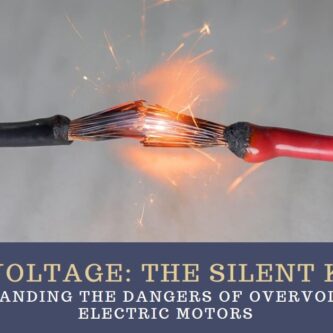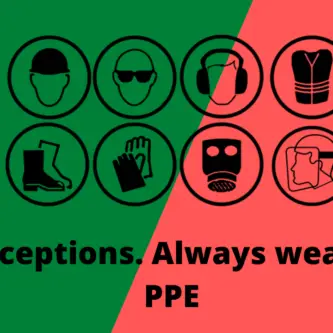Electrical panels, also known as distribution boards, are an essential part of any electrical installation.
These panels are responsible for distributing electrical power from the main source to various circuits and appliances.
One of the crucial aspects of electrical panels is their IP rating. The IP rating determines the level of protection an electrical panel provides against various environmental factors such as water, dust, and other foreign particles.
In this article, we will discuss how the IP rating impacts the safety of electrical panels and why it is important to choose the correct IP rating.
IP Ratings Explained
The IP rating or Ingress Protection rating is a two-digit code that indicates the degree of protection an electrical enclosure provides against the ingress of foreign particles such as dust, water, and other materials.
The first digit in the code represents the level of protection against solid particles such as dust, while the second digit represents the level of protection against liquids. The higher the digit, the higher the protection level.
When selecting an electric panel, it is essential to choose one with an appropriate IP rating for the location where it will be installed. Here are some guidelines for choosing the right IP rating:
- Determine the level of exposure: The first step in selecting the right IP rating is to determine the level of exposure to water and other foreign objects in the area where the panel will be installed. For example, if the panel will be installed in a dry area, it may only require a lower IP rating. However, if the panel will be exposed to moisture or water, a higher IP rating may be necessary.
- Consider the location: The location of the panel will also impact the required IP rating. For example, if the panel will be installed outside, it will need a higher IP rating than if it is installed indoors.
- Determine the type of protection: The type of protection needed will depend on the type of water exposure that the panel will encounter. For example, if the panel will be exposed to splashing water, it will need a different IP rating than if it will be submerged in water.
- Consult with an expert: It is always recommended to consult with an expert to determine the appropriate IP rating for your specific needs. An electrician or electrical engineer can help determine the right IP rating based on the location and type of exposure.
Here are some common IP ratings and their corresponding level of protection:
- IP20: Provides protection against solid objects larger than 12.5mm and does not provide any protection against water.
- IP44: Provides protection against solid objects larger than 1mm and splashing water.
- IP65: Provides protection against solid objects larger than 1mm and low-pressure water jets.
- IP68: Provides protection against solid objects larger than 1mm and long-term immersion in water.
Impact of IP Rating on Electrical Panel Safety
The IP rating of an electrical panel has a significant impact on its safety. Here are some of the ways that the IP rating affects electrical panel safety:
- Protection Against Dust: Electrical panels with a high IP rating are more resistant to dust and other solid particles. This means that the panels are less likely to suffer from short circuits or other electrical faults caused by dust accumulation. Dust accumulation can also cause the panels to overheat, which can lead to fires.
- Protection Against Water: Electrical panels located in areas where there is a high risk of water exposure, such as outdoor areas or areas with high humidity, require a high IP rating to ensure safety. Electrical panels with a low IP rating may be at risk of water damage, which can cause electrical shocks, short circuits, and other electrical hazards. For more information on how water impact panel safety read my article here.
- Protection Against Corrosion: In addition to dust and water, electrical panels may also be exposed to other corrosive substances such as chemicals and gases. A high IP rating ensures that the panels are protected from corrosion caused by these substances, which can lead to electrical faults and hazards.
- Protection Against Physical Impact: Electrical panels may be exposed to physical impact, such as accidental collisions or intentional damage. A high IP rating ensures that the panels are protected from physical impact, which can cause electrical faults and create safety hazards.
- Compliance with Electrical Safety Standards: Choosing the correct IP rating for an electrical panel ensures compliance with electrical safety standards. These standards specify the minimum level of protection required for electrical installations in different environments. Non-compliance with these standards can result in fines, legal action, and, most importantly, safety hazards.
Conclusion
In summary, the IP rating of an electrical panel plays a crucial role in ensuring safety. A high IP rating ensures protection against dust, water, corrosion, physical impact, and compliance with electrical safety standards.
Choosing the correct IP rating for an electrical panel is essential to prevent electrical faults, hazards, and ensure compliance with safety standards.
you work With Electricity! Don’t leave empty-handed!
Looking to stay ahead of the game in the world of electrical engineering? Subscribe to my YouTube channel and gain access to exclusive content you won’t find anywhere else!
The staff I recommend (Amazon Affiliate Links to products I believe are high quality):
- Economy 120 Volt/60Hz AC Power Source – Step-Down Voltage & Frequency Converters 1800W
- UNI-T Digital Multimeter Tester UT139C
- 50-Amp Extension Cord for RV “100ft”
- Voltage Stabilizer 110/220v
- Hair Dryer “best selling“
- TOSHIBA EM131A5C-BS Countertop Microwave Ovens
Disclaimer: This contains affiliate links to Amazon products. I may earn a commission for purchases made through these links.


